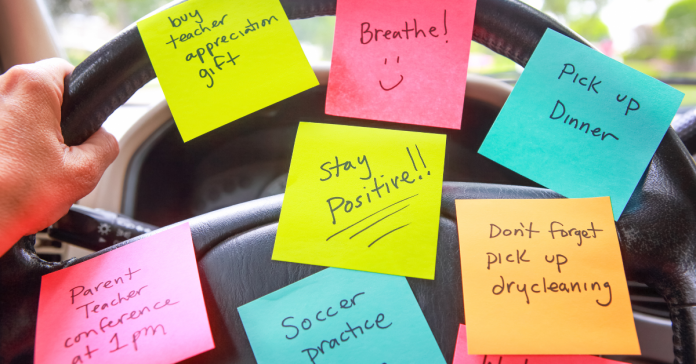“You doing ok?” I asked my friend.
“I don’t know,” she said as we walked along the trail. “I just feel…” she paused searching for the right word.
I could sense the word she was thinking for. “Overwhelmed?” I asked her.
“Honestly, yes,” she said. “But I don’t understand why. I mean, kids are back in school. My partner’s not deployed. We’re not PCSing anytime soon. And yet there seems to be this deep overwhelm running through me.”
My friend’s response is pretty typical. When we feel overwhelmed, we tend to attribute that feeling to an outside event, a catalyst. A last minute TDY. A sick kid. An unexpected OCONUS PCS. And yes, these can contribute to feeling like the entire world is closing in on you and nothing will work out and everyone is against you. A lot of those things you can’t control. Like when the military will finally send you orders.
The good news is that there are some sneaky thoughts, behaviors, and habits that are contributing to your sense of overwhelm and you do have control over them! So let’s explore what those are.
- You’re overcommitted: you love saying “yes” to all the things. Even if you actually dislike or even loathe them. “Sure, Sally, I will help with the egg hunt and make sure each kid has a gourmet snack, a personalized bag, and at least 30 eggs.” If that sentence didn’t send your blood pressure up, then keep on doing you, Boo. But if taking on another project or pet or preschool function is going to tip you over the edge, then please start off loading your commitments. And embrace the word “no.”
- Poor Time Management: Sometimes overwhelm can be a result of poor time management. We think we have more time to accomplish all the things we need to and then something throws a wrench in our plans and then our whole day/week/month/year is ruined. There are so many awesome time management tools (fun planners, time blocking, etc..). Find one (Pinterest is a great place to search) that works for you. Commit to using it and see what happens.
- Unmet Expectations: Every time we PCS, I have expectations for how things should go. Every. Time. And then when the movers take five days to pack out instead of two or the finance office has a random training holiday that causes everything else to get delayed, I wonder why I feel so overwhelmed. Expectations are fantastic to have. But when those expectations go unmet, it’s important that we acknowledge them going unmet (looks like another week in the hotel with 2 dogs and 3 kids), bring awareness to how we feel about that (so frustrated, angry, disappointed, overwhelmed), and accept what we are able to (I believe that something better is waiting for me).
- Fear of the Unknown: Despite not knowing where we’re going to be living every few years, military family brains still fear the unknown. Why? Because the job of our brain is to keep us safe. It wants us to believe that it can predict and calculate situations for our survival. And when it can’t do that, it kind of freaks out (ahem-sends us into overwhelm). When we know this is NORMAL, it can help minimize that freak out response.
- Feelings of Inadequacy: We feel inadequate when we fail to live up to our own expectations and the assumptions we have about HOW we should be acting/behaving. Maybe you think you should have it all together and should be enjoying this new duty station. But you don’t. Consider this-what are the messages you’re sending yourself? How are you treating yourself when you don’t meet these high standards you’ve set for yourself? I’m assuming you don’t feel great. This leads to feeling like you’re not enough. You’re inadequate. You can’t do anything right so why bother? And for many, this can spiral into depression and isolation.
- Undervalue your own needs: I like to ask the following question to my clients-But how are you caring for yourself? What are you doing to fill your cup? How are you handling the overwhelm? As parents, we are so quick to undervalue our own needs. To recognize that we must put our own oxygen mask on first before we can put on others’. We consider self-care selfish. We dismiss self-love as a “nice to have.” You cannot continue to survive, let alone, thrive on an empty tank. You can’t ignore your needs and hope they magically get better on their own.
If after reading these six points, you still find yourself overwhelmed (or even more overwhelmed because now you have so much more to think about!) I’d like to encourage you to find one point, just one, and see how you can make a small tweak in your current life to reduce the overwhelm by just five percent. Or 10 percent.
A lot of times when we want to make a life change, we think we have to overhaul the whole system. But research shows that kind of change doesn’t last long-term. So try exploring one of these points this week and see how it goes. And then maybe the next week, you try adding another one. You got this! I believe in you.











